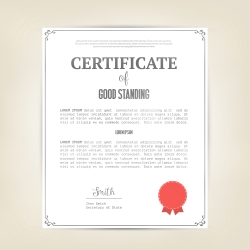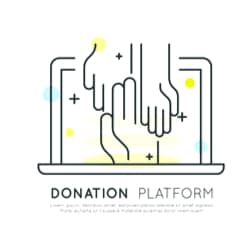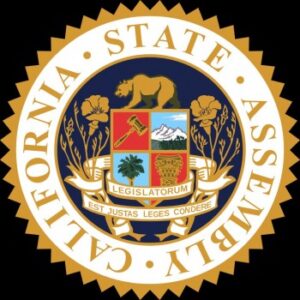On March 26th, California issued its final regulations governing charitable fundraising platforms. The regulations administer the law enacted in 2021 and significantly impact how platforms and platform charities must operate. The regulations also affect organizations that receive charitable donations through these platforms. This article, and a more detailed summary on our website, outlines who the new regulations affect, notes the key effective dates, and provides a summary of important new requirements including user/donor disclosures, rules governing donation disbursements, and other operational requirements.
Who is affected by the regulations?
Charitable Fundraising Platforms (“Platforms”)
Charitable fundraising platforms include any person or entity that uses the internet to provide an internet website, service, or other platform to persons in California, and performs, permits, or otherwise enables acts of solicitation to occur. The broad definition includes not only technology platforms specifically designed to facilitate online charitable donations, but also applies to many online retail websites and mobile apps that facilitate cause marketing promotions, invite customers to donate at checkout, or offer to make a donation in exchange for a free action taken online.
Read this article to learn about the limited exceptions to the definition of “charitable fundraising platform,” and how the new law applies to platforms that meet the definition of more than one regulated fundraising category.
Note that certain requirements vary based on the Solicitation Type(s) conducted on a platform.
Platform Charitable Organizations (“Platform Charities”)
Platform charities receive donations on platforms that are recommended or advised to be granted to another charitable organization.
Recipient Charitable Organizations (“Recipient Charities”)
Recipient charities are those that are listed within a platform as a potential recipient of donations generated through the platform, and include donations received directly from the platform, or as a recommended donation or grant from a platform charity.
Persons Who are Sent Funds in Peer-to-Peer Charitable Fundraising
A person may be required to register as a trustee with the California Attorney General’s office if they are sent funds from a platform as part of a charitable peer-to-peer fundraising campaign and cannot send the funds to the recipient charity within 10 business days of their receipt of the funds.
What do the regulations cover?
The following is a high-level overview of the requirements covered by the Regulations, organized by date. For a more detailed summary, please see the article California Issues Final Regulations Governing Charitable Fundraising Platforms.
Effective March 26, 2024
Definitions (Section 314)
The definitions provide additional clarification to terms defined in the statute and create names for the different Solicitation Types described in the statute.
Good Standing of Charities (Section 316)
The Regulations provide new procedures for implementing the “good standing” requirement, which affects when platforms can and cannot send funds to a recipient charity.
Solicitation Disclosures (Section 317)
The Regulations expand on the disclosure requirements, particularly in peer-to-peer fundraising, and clarify that information on fees can be included in a hyperlink.
Donations Held by Platform Users in Peer-to-Peer Fundraising (Section 323)
Persons conducting peer-to-peer fundraising campaigns that are sent donated funds from the platform or platform charity must send the donated funds to the recipient charity within 10 business days after receipt of the funds, or else register as a trustee with the California Attorney General’s office.
Effective June 12, 2024
Registration and filing requirements (Section 315)
The new registration and filing requirements applicable to charitable fundraising platforms become operative on June 12, 2024, and must be filed online.
Effective January 1, 2025
Charity consent for solicitations (Section 318)
The regulations outline certain details that must be included in any agreement entered into between a platform or platform charity and recipient charity.
Tax donation receipts (Section 319)
The regulation specifies that “prompt” issuance of tax donation receipts means no later than five (5) business days after the donation is made.
Sending of donations to charities (Section 320)
The time in which platforms must disburse donations to recipient charities varies based on the Solicitation Type at issue, and whether the recipient charity consented or not to being included on the platform.
Accounting of donations to charities (Section 321)
Certain information about the donations, including fees, and the activities that generated the donation, must be provided by platforms to recipient charities with the donated funds.
Information for Donors Regarding Donations Sent (Section 322)
Platforms must allow donors/users to find out whether their donations (or donations generated by their purchases or other activity) reached the recipient charity or alternative charity.
Want to know more?
Previous articles covering the new California law governing charitable fundraising platforms provide additional information on its requirements.
California Enacts New Law to Regulate Charitable Fundraising Platforms
How Does California’s New Fundraising Platform Law Affect Cause Marketing?
This article is for informational purposes only and is not intended to be an exhaustive summary of the new requirements. Any persons or entities affected by the new law and regulations should consult with their legal counsel to ensure full compliance with the new requirements.
- Karen l. Wu
- Karen l. Wu
- Karen l. Wu
- Karen l. Wu
- Karen l. Wu
- Karen l. Wu













